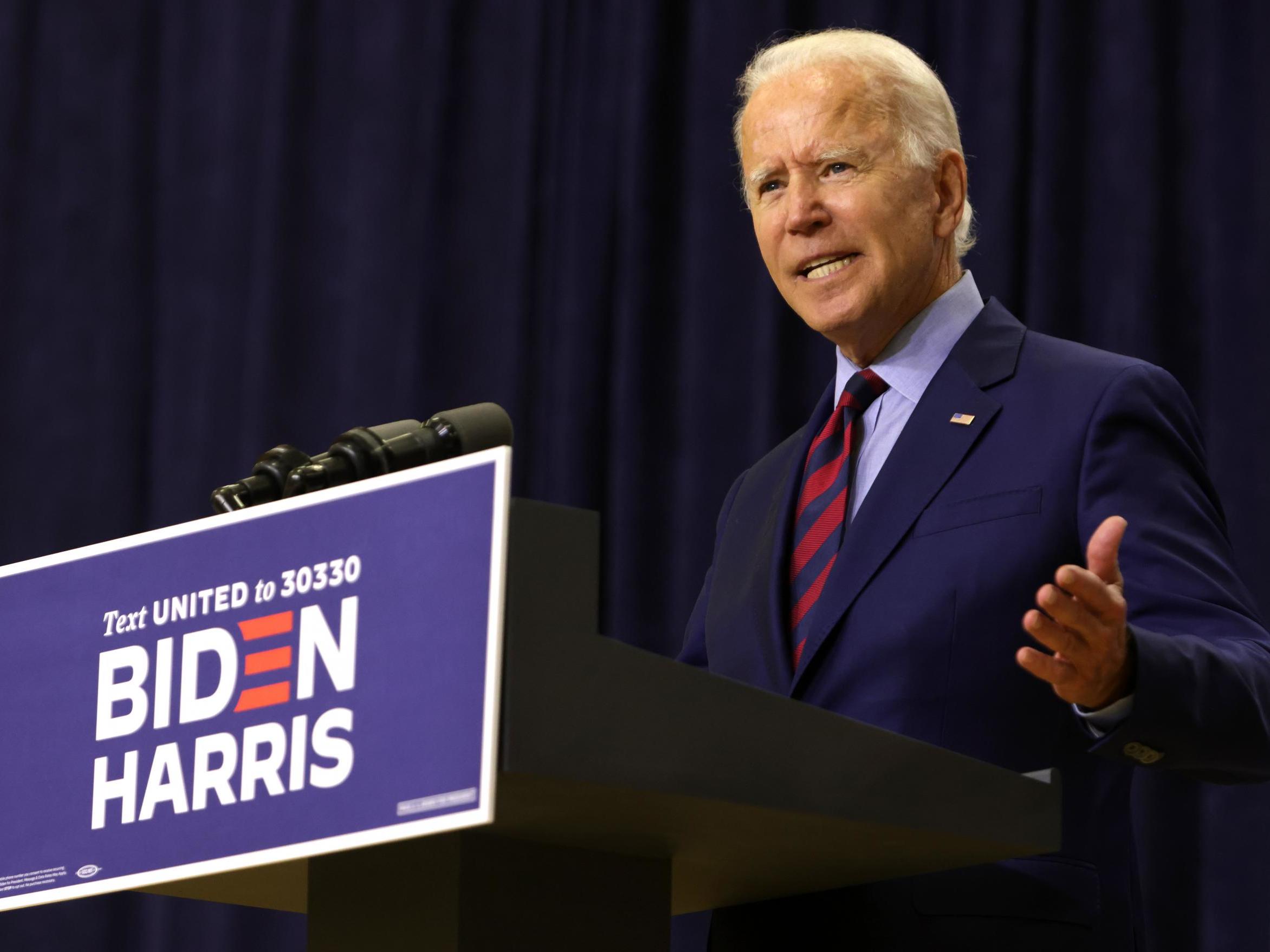People are too obsessed with opinion polls in the US election
If we want to understand the presidential race we have to try to understand the people as well as the numbers, writes John Rentoul


I am guilty of it myself. I spend a lot of time on FiveThirtyEight, Nate Silver’s statistics-obsessed website, and on RealClearPolitics, another US site that collates opinion polls.
I know enough about American politics to know that the national polls are not what matter. We all learned that the hard way last time, when Hillary Clinton won more votes, as the national polls suggested she would, but lost the election because she failed to win the electoral college votes of Michigan, Pennsylvania and Wisconsin – where state polls got it wrong.
This time, therefore, we will pay attention to state polls, but try to adjust for some of the quality problems that bedevilled them in 2016. And we will note that, although Joe Biden has a seven-point lead in national polls, in Pennsylvania, the state he currently needs to gain the 270 electoral college votes to win, he is leading by a quality-adjusted average of just 4.5 points.
That is not much. We don’t know how accurate it is and, anyway, we are two whole months away from the election. What we should have learned from last time was that journalists, pollsters and commentators tended to miss how disliked Clinton was in rust belt states, and how Donald Trump’s conventionally disqualifying attributes didn’t matter to those voters.
As Charlotte Alter, national correspondent of Time magazine, put it: “A side effect of the datafication of political expertise is that the people who can read polls are perceived to be smarter than the people who can read people.”
That is why it is more important to find out what swing voters in swing states think about the violent protests that have erupted across the US; what they think about coronavirus; and how they feel their economic prospects are changing.
We cannot assume that these voters will think, as many commentators do, that it is a bit rich for Trump to claim to be a “law and order” president when the cities are burning. Many swing voters blame Democratic mayors and think that Biden has been slow and equivocal in condemning violence against the police.
Nor are Trump’s voters easily persuaded that their president has handled the pandemic badly; and if the economy continues to grow back strongly they may continue to resist being told as much by educated liberals who seem to them bent on doing down America.
This election could still be close, and if we want to understand it we have to try to understand the people, as well as the numbers.
Yours,
John Rentoul
Chief political commentator
Join our commenting forum
Join thought-provoking conversations, follow other Independent readers and see their replies
Comments
Bookmark popover
Removed from bookmarks